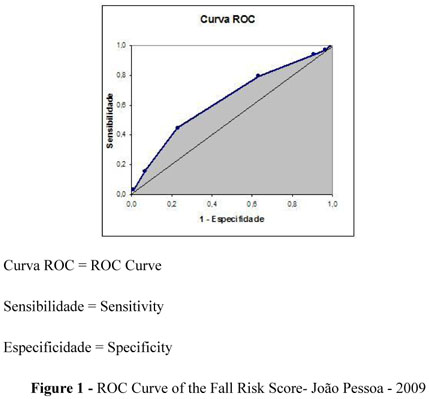The world population is aging rapidly, which poses a greater challenge for the institutions involved which, in turn, require new public health policies that include the prevention of falls. The objective of this study was to assess the risk of falls in the elderly. This epidemiological, cross-sectional study was performed at a family health unit, using a quantitative approach. The sample consisted of 150 elderly individuals evaluated from January to April 2009. Data were collected using the Fall Risk Score, which was analyzed using SPSS 17.0. Of all seniors evaluated, 58.8% did not suffer falls. However, 63 seniors did suffer falls, 71.4% of this total experienced 1 to 2 falls, and the main intrinsic cause they reported was dizziness/vertigo, whereas the extrinsic cause was wet or slippery floors. Therefore, it is concluded that it is important to assess the risk of falls among the elderly so that preventive measures can be taken, with a view to maximizing their quality of life.
Aged; Aging; Accidental falls; Geriatric nursing





